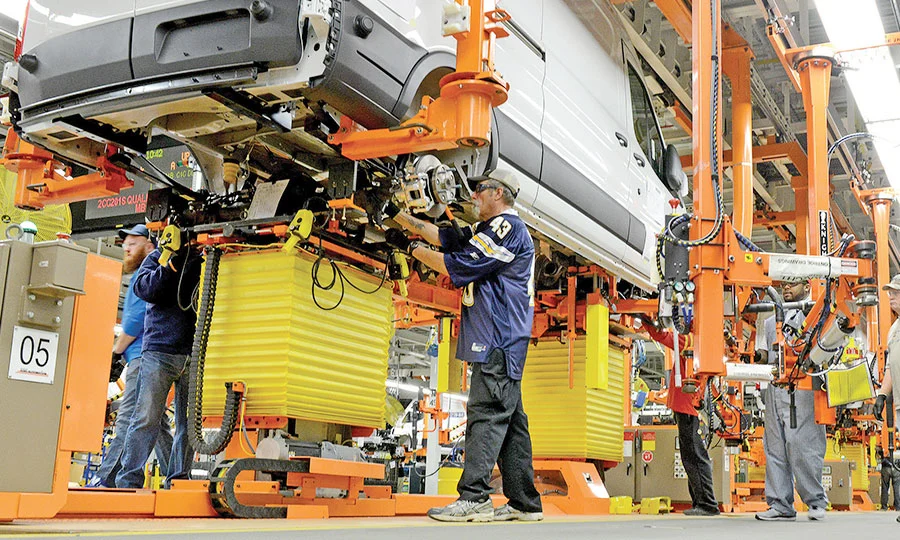Factory worker jobs in Canada are indeed a valuable and promising career path for many individuals. Canada’s strong economy, diverse job opportunities, and high quality of life make it an attractive destination for job seekers from around the world. Factory work offers stability and a chance to build a career in a thriving industrial sector. If you have any questions or need information about factory worker jobs in Canada or any other topic, please feel free to ask, and I’ll be happy to help.

Working in Canada, whether as a factory worker or in any other profession, can indeed offer a range of advantages. Canada is known for its excellent working conditions and payment structures, and its robust manufacturing industry contributes significantly to the nation’s economic stability. Some of the advantages of working in Canada include:
1. Universal Healthcare Program: Canada’s universal healthcare system ensures that all residents, including workers, have access to essential healthcare services without high out-of-pocket expenses.
2. Employee and Social Security Benefits: Canadian labor laws provide social security benefits guaranteed by law, which can include retirement benefits, disability benefits, and more.
3. Fair Cost of Living: While the cost of living can vary by region, Canada generally offers a reasonable cost of living compared to many other developed countries.
4. Job Security thanks to Employment Insurance: Employment Insurance (EI) provides temporary financial support to workers who have lost their job through no fault of their own, contributing to job security.
5. Minimum Wage & Overtime Pay: Canada has minimum wage standards and overtime pay regulations in place to ensure fair compensation for workers.
6. Maternity, Paternity, Care, and Critical Illness Leave: Canadian workers are entitled to various types of leave, including maternity and paternity leave, as well as leave to care for family members or for critical illness situations.
7. Vacation Entitlements: Workers in Canada often receive paid vacation time, providing an opportunity for rest and relaxation.
These advantages contribute to Canada’s reputation as a desirable destination for workers seeking good working conditions, a high quality of life, and various social benefits. It’s important to note that specific benefits and conditions may vary depending on the province or territory in which you work in Canada, as labor laws and regulations can differ.
Factory Workers Pay Scale in Canada
1. Average Pay in Canada: Workers in Canada, on average, earn between $19 to $21 CAD per hour, but pay rates can vary based on factors such as location, industry, and experience.
2. Factory Worker Pay: Factory workers in Canada typically receive an average hourly wage of around $16.50 CAD.
3. Factory Sector Employment: The factory sector employed more than 3.5 million people in 2022, highlighting the industry’s substantial contribution to the Canadian job market. The continued growth of this sector indicates ongoing opportunities for employment.
4. Qualifications: As the number of factory worker jobs in Canada grows, the emphasis shifts toward candidates’ qualifications and skills. Having the right qualifications and skills can significantly improve your chances of securing a job in the industry.
It’s worth noting that specific pay rates and job opportunities can vary depending on the province, the type of factory work, and other factors. As such, job seekers should research and consider their specific circumstances when pursuing factory worker positions in Canada.
Steps in becoming a factory worker in Canada.
Becoming a factory worker in Canada, especially as a foreign worker, is indeed achievable with the right steps and preparation. Here’s a recap of the key steps to pursue a career as a factory worker in Canada:
1. Obtain a Work Permit: To work legally in Canada, you need to secure a work permit. Research the specific work permit requirements based on your qualifications and apply for the appropriate one based on your eligibility.
2. Find a Job Offer: Start your job search by looking for factory worker vacancies in Canada through various channels, including personal networks, job boards, and employment agencies.
3. Meet Employment Requirements: Ensure you meet the qualifications and requirements specified by potential employers, which may include education, experience, and language proficiency.
4. Prepare Documents and Apply for Jobs: Gather necessary documents such as your resume, educational credentials, work experience certificates, and a valid passport. Submit your applications to prospective employers and attend interviews as needed.
5. Secure a Job Offer: Once you receive a job offer, your employer will need to provide a Labour Market Impact Assessment (LMIA) or offer a job through a specific stream like the Provincial Nominee Program (PNP). These documents will help you apply for a work permit through the Canadian immigration system.
6. Relocate to Canada: After obtaining your work permit, make the necessary arrangements to relocate to Canada and start your career as a factory worker.
Becoming a factory worker in Canada can lead to a stable and rewarding career with competitive wages and growth opportunities. While the competition for these jobs can be intense, taking the right steps can help you navigate the process and achieve your goal. Sharing this information with others who may benefit from it is a great way to support those seeking opportunities in Canada. Good luck on your journey to becoming a Canadian factory worker!
For more visit https://ca.indeed.com/



Good